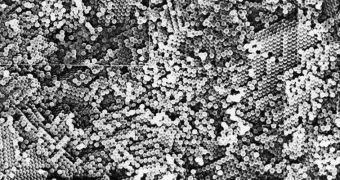Scientists from a number of universities in Finland have joined forces for a common interest, the development of a silicon-based delivery system at the nanoscale. The innovation holds great promise for carrying drugs to their alloted destinations, and may also provide a new way of combating obesity and excessive appetite, the researchers say. Already, the team was able to support the actions of peptides controlling appetite inside the human body, essentially keeping weight in check, AlphaGalileo reports. Future diets could be based entirely on nanoparticles, the group believes.
The work is being conducted (and funded) under the Research Program on Nanoscience (FinNano), a project of the Academy of Finland. The reason why silicon was selected as the main material to construct the new delivery systems from is its porous structure. This allows researchers to attach various types of drug molecules onto their surfaces. The connections can also be used to alter the properties displayed by these molecules, and also allow scientists to closely control their behavior.
The group says that another reason why it has selected silicon is the fact that the chemical can currently be manufactured at both the micro- and the nanoscale. This allows the team to ponder on a number of delivery methods for the future drugs, such as ingestion, injections, or even subcutaneous applications. Additionally, other biodegradable nanoparticles can also be used for targeting. This means that the nanoscale ensembles could receive a guiding system, which would point them exactly to the region of the body they were created to cure.
The new effort represents a massive cross-disciplinary one, including physicists, pharmacists, physicians, biotechnologists, chemists, and experts in material sciences. All experts work within a broad national research network, which is destined to make their efforts a lot easier. The scientists come from the universities of Kuopio, Turku, Helsinki and Oulu, as well as from the Lappeenranta University of Technology. They say that silicon can also be used to deliver peptides, proteins and genetic drugs, in addition to more classic medicine.

 14 DAY TRIAL //
14 DAY TRIAL //